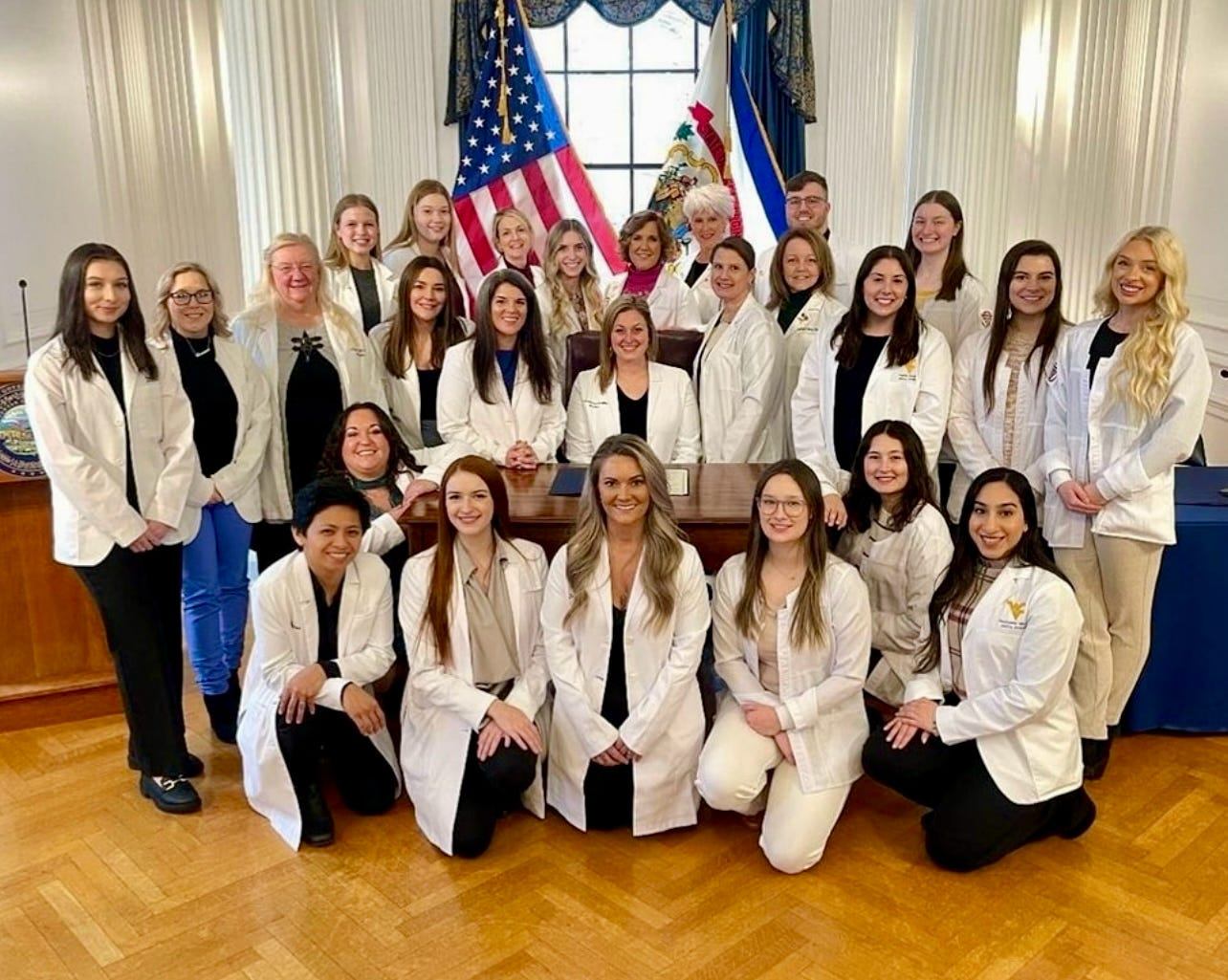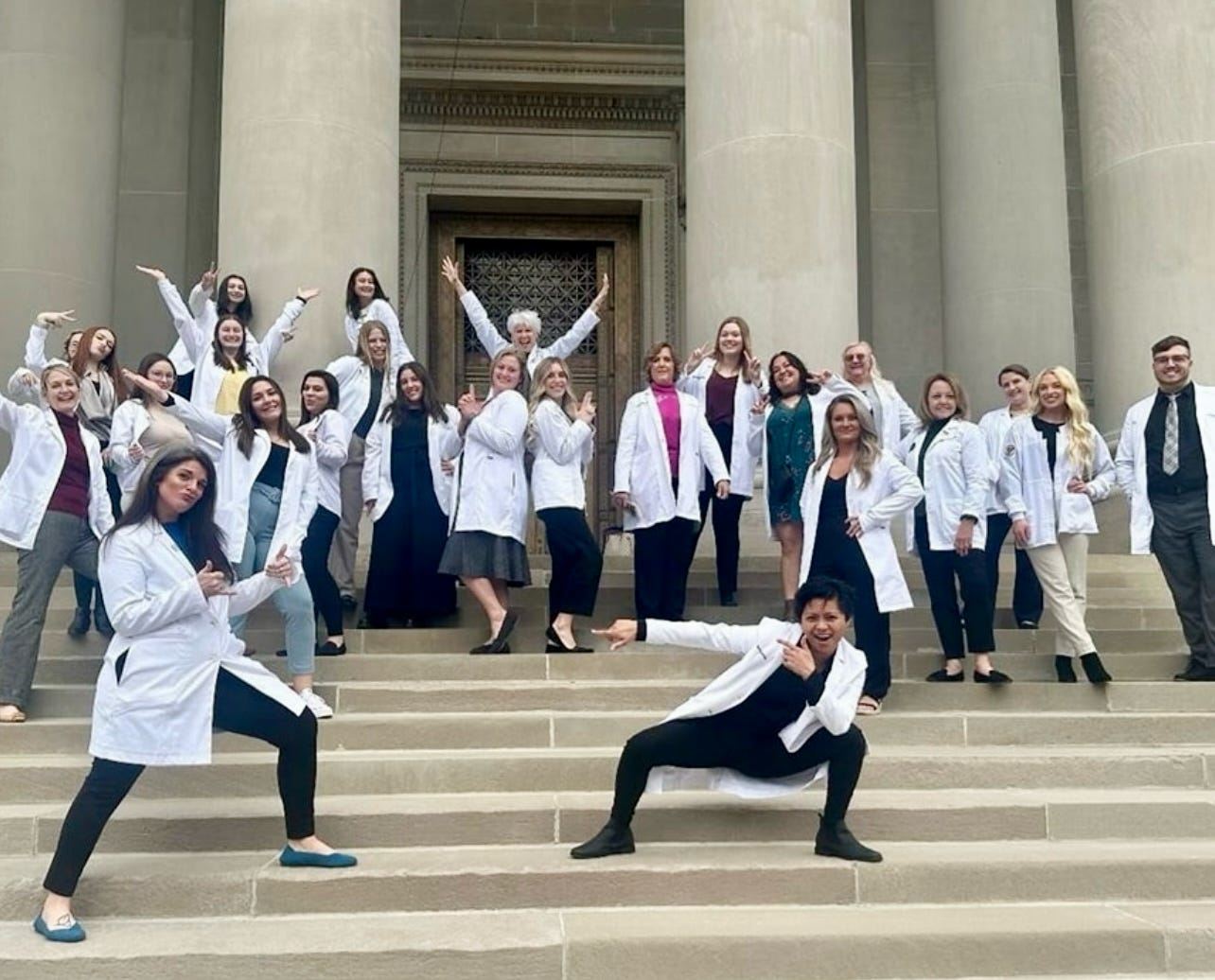
West Virginia University School of Dentistry dental hygiene seniors embraced their roles as oral health ambassadors during a visit with legislators at the state capitol in Charleston, West Virginia. The 4-year dental hygiene degree program prepares graduates for careers not only in the clinic, but also as administrators, educators, researchers and advocates.
Students Caroline Maxwell and Reyna Mikhail reflect on their mission in their own words below.
What was one of the most important oral health issues to present to legislators and why?
One of the most important oral health issues brought before the legislature is HB 4956: The Oral Health and Cancer Rights Act. This Act aims to assist West Virginia citizens with cancer who lack the financial means to afford treatment by providing coverage for essential medical procedures needed for their recovery. Whether for cancer treatment or restoring functions related to eating, breathing, voice, speech, and swallowing, especially when these issues are tied to a cancer diagnosis, this act would offer vital support.
-Reyna Mikhail
During our visit to Charleston, we were given the opportunity to advocate for the Oral Health and Cancer Rights Act. This act will mandate coverage for procedures necessary for cancer treatment and rehabilitation such as eating, breathing, speech, and swallowing. The passing of this legislation will improve cancer survival rates, reduce post operative disability, reduce the added stress of out-of-pocket spending on treatments, and improve lifetime earnings of cancer patients.
-Caroline Maxwell
Does the experience teach you how to make a difference out of the clinic? If so, what's it like when you learn how influential you are and will be?
This was an inciteful experience that allowed me to transition my clinical and educational experience as a hygienist into advocating for change and the promotion and prevention of oral health care for those within my community. I truly enjoyed this experience and could one day see myself running and participating on the ADHA board or simply advocating within the capitol itself. This experience set my values in line, and I am now more excited to venture out into my career to advocate for all my patients and oral health in totality.
-Caroline Maxwell
What kind of changes would you like to see from lawmakers that could help your current or future patients?
We were advocating for two additional bills relating to patients who require dentures. I would be interested in continuing to advocate for these bills, as I see the importance of allowing my patients to chew and swallow their food. The ability to eat is directly related to the quality of life; I believe that those who require a denture should be able to receive them, and it is up to the dental community to remove the barriers to care.
-Caroline Maxwell
Describe your biggest takeaway from the experience.
My biggest takeaway from this experience was realizing that if hygienists and dentists do not advocate for oral health then change will not occur. It is up to us as oral health professionals to network with each other and politicians to identify a problem and solve it through legislation. I am thankful that I was given the opportunity to take this trip, as it has opened my eyes to the importance of advocacy for the future of our patients, profession, and total healthcare.
-Caroline Maxwell

